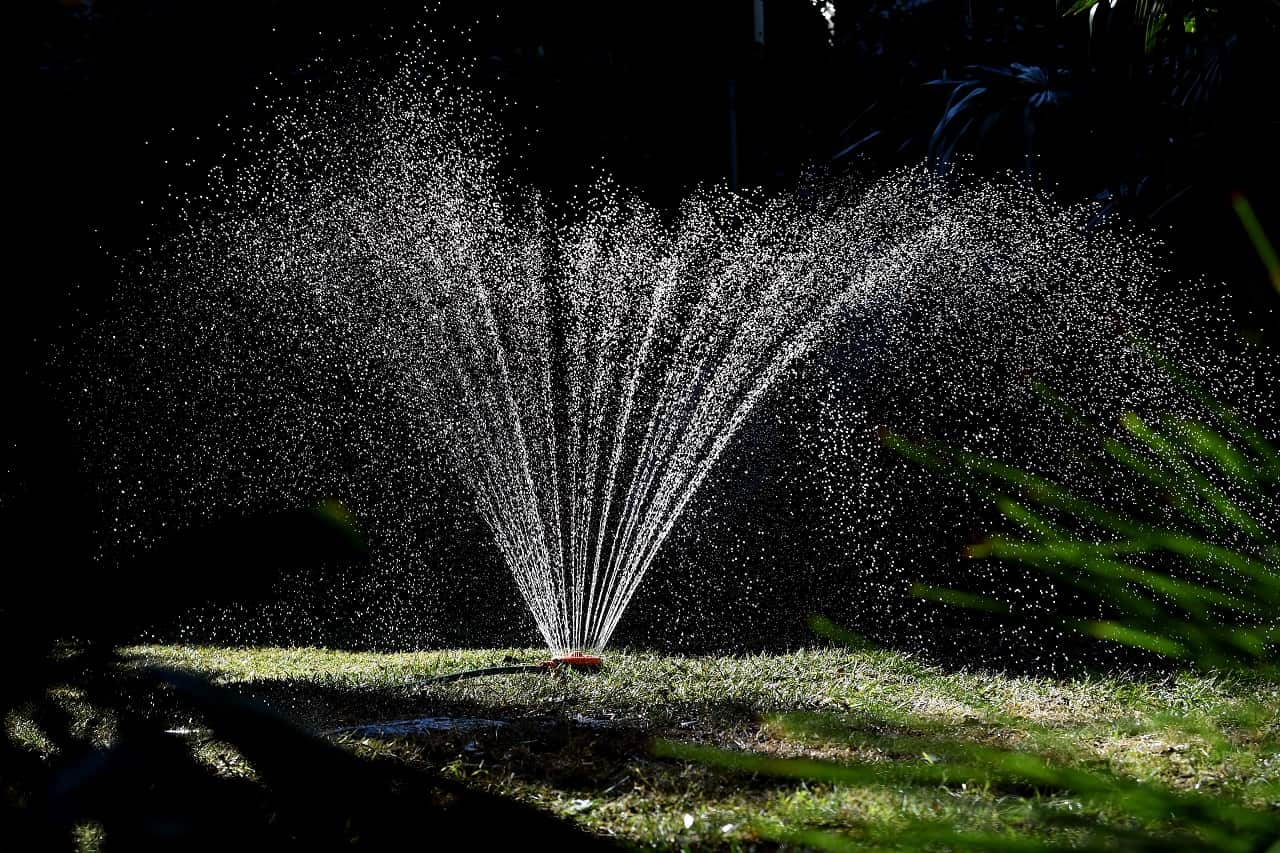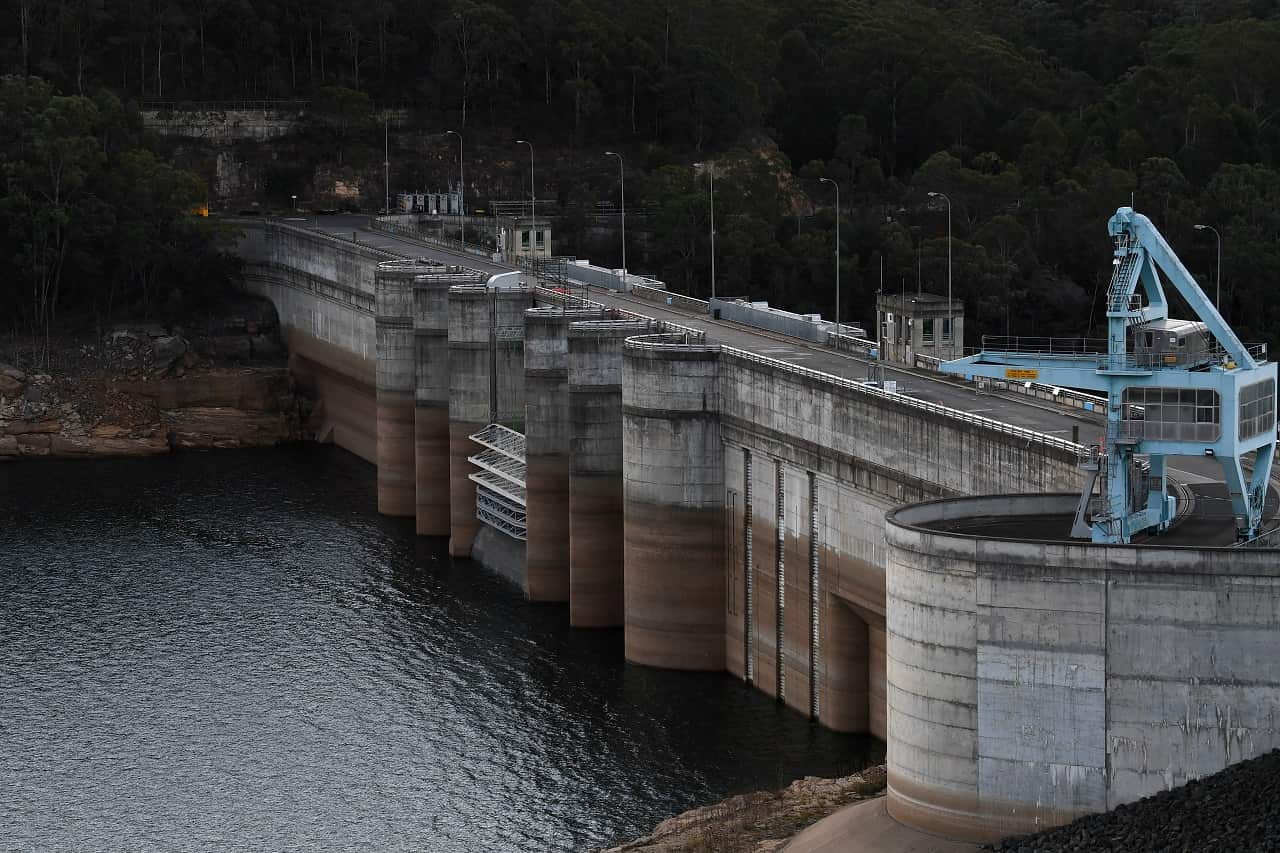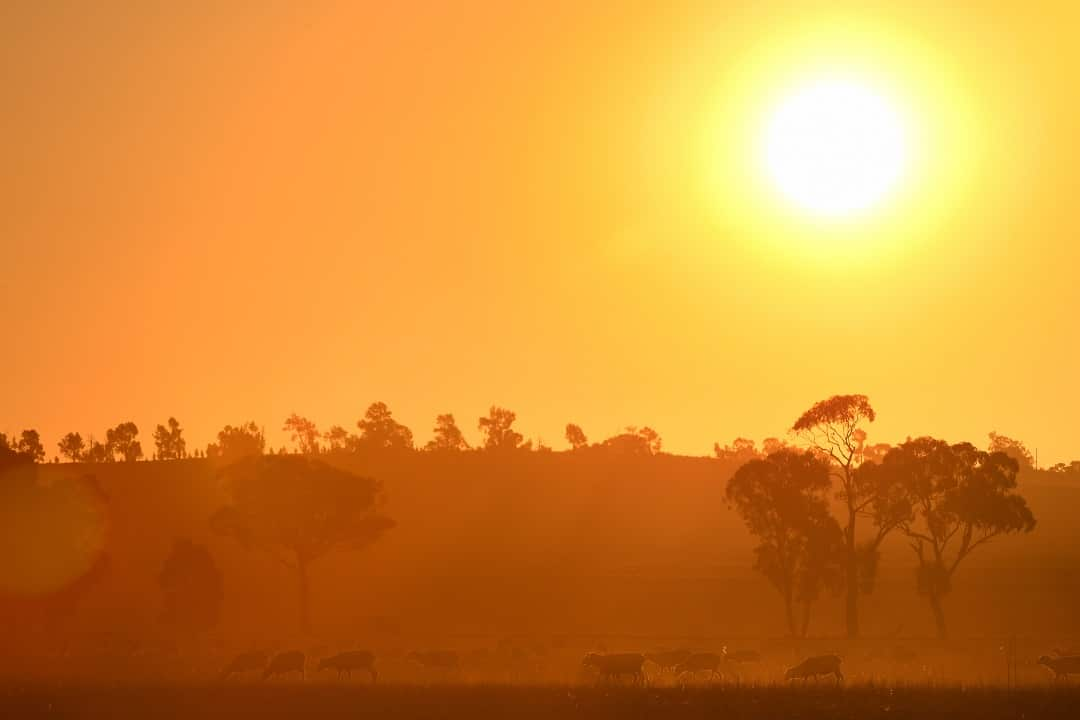Sydney has turned to water restrictions for the first time in a decade.
The NSW capital on Saturday entered level one water restrictions after dam storages dropped from 95 per cent to 53 per cent in two years.
Sydney's level one restrictions will affect gardens, pools and the cleaning of outdoor areas and vehicles.
From Saturday, hoses must have a trigger nozzle or another attachment with an instant on-off mechanism and gardens can only be watered before 10am and after 4pm.
Residents are barred from using standard sprinklers and watering systems at any time of day.

But lawns and gardens can be watered with a bucket or watering can.
Sydneysiders will not be able to wash vehicles and buildings with a hose that isn't fitted with a trigger nozzle or high pressure cleaning equipment.
And they cannot clean hard surfaces such as paths, driveways and paved areas with a hose as part of general cleaning.

Residents with a pools greater than 10,000 litres cannot fill them unless they have a pool cover and permit from a pool supplier.
However, there will be a three-month grace period before fines of $220 for individuals and $550 for businesses are imposed.
Drying up
Dam storages in Australia's biggest city have dropped from 95 per cent to 53 per cent in two years.
Stuart Khan, a professor in the UNSW's School of Civil and Environmental Engineering, called the drop "extreme".
"It's the most rapid decline we've seen ... It's more dramatic than the rate of depletion we saw in the lead-up to the Millennium Drought of 2001-2003," he told SBS News on Saturday.

Professor Khan said the drop was a result of decreased rainfall and prolonged drought, which is likely being compounded by climate change.
"One of the most widely-accepted projections around climate change in an increased frequency and severity of extreme weather events," he said.
Sydney last faced restrictions in 2009, though permanent water rules have been in place ever since.
In January, the city's desalination plant returned to operation for the first time in seven years.
It is now working at about 50 per cent capacity and will add about 15 per cent to the water supply when it reaches full operation, Water Minister Melinda Pavey said this week.
Level two water restrictions are expected to be triggered, if dam levels fall to 40 per cent.
"If things keep going the way they are ... then we would be in pretty serious circumstances going into 2020," Professor Khan said.
Additional reporting: AAP

